Related Research Articles

Sir Thomas Beecham, 2nd Baronet, CH was an English conductor and impresario best known for his association with the London Philharmonic and the Royal Philharmonic orchestras. He was also closely associated with the Liverpool Philharmonic and Hallé orchestras. From the early 20th century until his death, Beecham was a major influence on the musical life of Britain and, according to the BBC, was Britain's first international conductor.
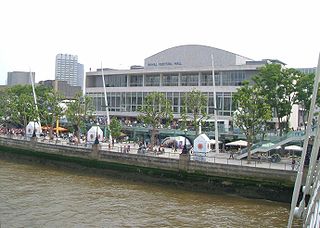
The London Philharmonic Orchestra (LPO) is a British orchestra and one of five permanent symphony orchestras based in London. It was founded by the conductors Sir Thomas Beecham and Malcolm Sargent in 1932 as a rival to the existing London Symphony Orchestra and BBC Symphony Orchestra.

The Royal Philharmonic Orchestra (RPO), based in London, is a British Orchestra that was formed by Sir Thomas Beecham in 1946. In its early days, the orchestra secured profitable recording contracts and important engagements including the Glyndebourne Festival Opera and the concerts of the Royal Philharmonic Society. After Beecham's death in 1961 the orchestra's fortunes declined steeply; it battled for survival until the mid-1960s, when its future was secured after an Arts Council report recommended that it should receive public subsidy; a further crisis arose in the same era when it seemed that the orchestra's right to call itself "Royal" could be withdrawn.

Sir Colin Rex Davis was an English conductor, known for his association with the London Symphony Orchestra, having first conducted it in 1959. His repertoire was broad, but among the composers with whom he was particularly associated were Mozart, Berlioz, Elgar, Sibelius, Stravinsky and Tippett.
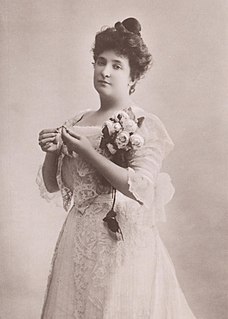
Dame Nellie Melba GBE was an Australian operatic soprano. She became one of the most famous singers of the late Victorian era and the early 20th century, and was the first Australian to achieve international recognition as a classical musician. She took the pseudonym "Melba" from Melbourne, her home town.
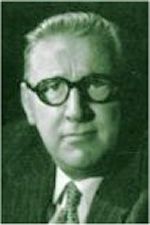
Harry Walter Legge was an English classical music record producer, most especially associated with EMI. His recordings include many sets later regarded as classics and reissued by EMI as "Great Recordings of the Century". He worked in the recording industry from 1927, combining this with the post of junior music critic of The Manchester Guardian. He was assistant to Sir Thomas Beecham at the Royal Opera House, Covent Garden, and in World War II played a role in bringing music to the armed forces and civilians.

Rutland Boughton was an English composer who became well known in the early 20th century as a composer of opera and choral music.

Dame Clara Ellen Butt, was an English contralto. Her main career was as a recitalist and concert singer. Her voice, both powerful and deep, impressed contemporary composers such as Saint-Saëns and Elgar; the latter composed a song-cycle with her in mind as soloist.

Eugène Goossens was a French born conductor and violinist.
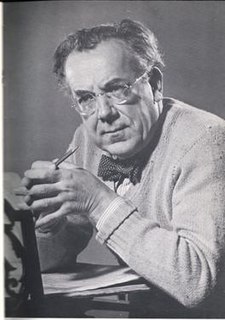
Karl Rankl was a British conductor and composer who was of Austrian birth. A pupil of the composers Schoenberg and Webern, he conducted at opera houses in Austria, Germany and Czechoslovakia until fleeing from the Nazis and taking refuge in England in 1939.
Norman Allin was a British bass singer of the early and mid twentieth century, and later a teacher of voice.

John Coates was a leading English tenor, who sang in opera and oratorio and on the concert platform. His repertoire ranged from Bach and Purcell to contemporary works, and embraced the major heldentenor roles in Richard Wagner's operas. For more than 40 years, with only a four-year interruption for military service during World War I, he overcame the limitations of a voice that was not naturally large by impressing listeners with his intense artistic expression, lively diction, musical versatility and memorable stage presence.

Frederic William Austin was an English baritone singer, a musical teacher and composer in the period 1905–30. He is best remembered for his restoration and production of The Beggar's Opera by John Gay and Johann Christoph Pepusch, and its sequel, Polly, in 1920–23. Austin was the older brother of the composer Ernest Austin (1874–1947).

The British National Opera Company presented opera in English in London and on tour in the British provinces between 1922 and 1929. It was founded in December 1921 by singers and instrumentalists from Sir Thomas Beecham's Beecham opera company (1915–1920), which was disbanded when financial problems over buying The Bedford Estate forced Beecham to withdraw from the music scene for a short period. The new venture was financed by the issue of 40,000 preference shares at £1 each. Among the musicians who met at the inaugural meeting of the new enterprise at the Queen's Hall were Sir Alexander Mackenzie, Sir Charles Stanford, Harry Plunket Greene, Walter Hyde, Aylmer Buesst and Sir Henry Hadow. The new company bought the entire assets of the Beecham company, comprising the scenery, costumes, scores, instruments and performing rights for 48 operas.
Frank Mullings was a leading English tenor with Sir Thomas Beecham's Beecham Opera Company and its successor, the British National Opera Company, during the 1910s and 1920s. Blessed with a strong stage presence and a voice that provoked varying reactions from critics, his repertoire included such taxing dramatic parts as Tristan in Tristan und Isolde, Radames in Aida, the title role in Otello, and Canio in Pagliacci. The limitations of early microphones meant that his voice was not always recorded successfully, although the British National Opera Company website notes that playing the recordings at 80 rpm produces a more reliable result.
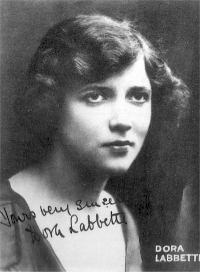
Dora Labbette was an English soprano. Her career spanned the concert hall and the opera house. She conspired with Sir Thomas Beecham to appear at the Royal Opera House masquerading as an Italian singer by the name of Lisa Perli. Away from professional concerns she had an affair with Beecham, with whom she had a son.
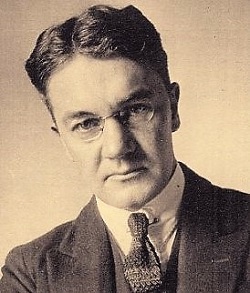
Julius Allan Greenway Harrison was an English composer who was particularly known for his conducting of operatic works. Born in Lower Mitton, Stourport in Worcestershire, by the age of 16 he was already an established musician. His career included a directorship of opera at the Royal Academy of Music where he was a professor of composition, a position as répétiteur at the Royal Opera House, Covent Garden, conductor for the British National Opera Company, military service as an officer in the Royal Flying Corps, and founder member and vice-president of the Elgar Society.
This is a summary of 1920 in music in the United Kingdom.

Walter Hyde was a British tenor, actor and teacher of voice whose career spanned genres from musical theatre to grand opera. In 1901 he sang Borrachio in the premiere of Stanford's Much Ado About Nothing and soon appeared in London's West End in light opera and Edwardian musical comedy. He appeared regularly at the Royal Opera House in Covent Garden between 1908 and 1924, becoming known for roles in Wagner operas, among others, both in Britain and America. He was also in demand as a concert artist. In his later years he was Professor of Voice at the Guildhall School of Music where his students included Geraint Evans and Owen Brannigan.

The Denhof Opera Company was an Edinburgh-based professional opera company founded in 1910 by Ernst Denhof to perform Wagner's The Ring of the Nibelung in English. It was the first major opera-performing Company to be established with a base in Scotland. After a series of financial losses it was taken over by Thomas Beecham in 1913 who used it as the basis for his Beecham Opera Company.
References
- 1 2 Jefferson, Alan (2004). "Beecham, Sir Thomas, second baronet (1879–1961)", Oxford Dictionary of National Biography, Oxford University Press, online edition, January 2011. Retrieved 29 January 2012.
- ↑ Kennedy, Michael and Bourne, Joyce (1996). "Denhof Opera Company". The Concise Oxford Dictionary of Music (1996 edition), encyclopedia.com. Retrieved 30 January, 2012.
- 1 2 Lucas, John (2008). Thomas Beecham: An Obsession With Music. London: Boydell & Brewer Ltd. pp. 131–133. ISBN 978-1-84383-402-1 . Retrieved 29 May 2012.
- ↑ The Times, 27 September 1921, p. 12